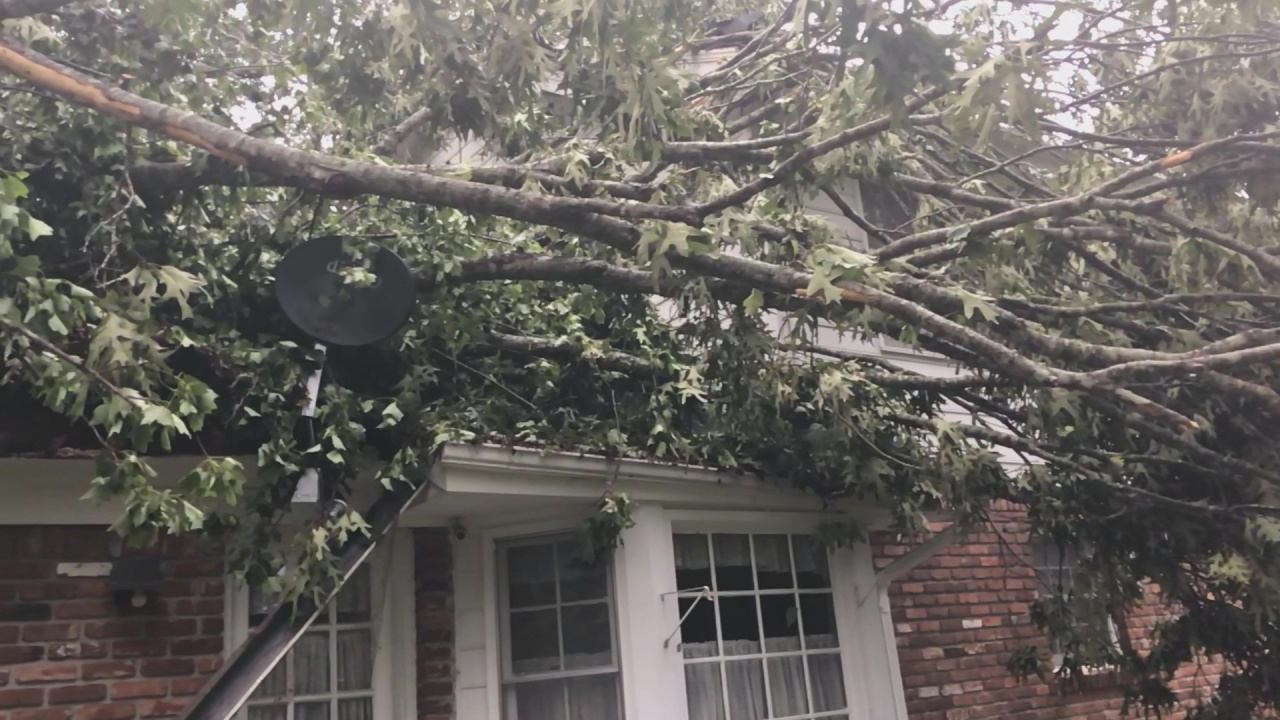Advocacy
References
NAR Library & Archives has already done the research for you. References (formerly Field Guides) offer links to articles, eBooks, websites, statistics, and more to provide a comprehensive overview of perspectives. EBSCO articles (E) are available only to NAR members and require the member's nar.realtor login.
Disaster Insurance Coverage
While the exact coverage will vary from policy-to-policy, the following list should give you a good idea of the types of natural "disasters" that a standard policy covers:
- Fire / Lightning
- Windstorms / Hail
- Freezing of Plumbing / Pipes
- Damage from Weight of Ice
- Volcanic Eruptions (with exceptions)
Source: Which Disasters are Covered by Homeowners Insurance? (Insurance Information Institute)
Information From NAR
The Quest for Coverage (REALTOR® Magazine, Feb. 9, 2024)
Suggest that buyers in disaster-prone areas get an insurance binder during the contingency period, if possible. “This way, you verify that the buyers can get insurance, are OK with the cost, and can still get the loan if some kind of natural occurrence comes up,” Gillam says.
Future-Proof Your Community (REALTOR® Magazine, Apr. 17, 2023)
Insurance has long been the main safety net for property owners, but investors and managers interviewed for the ULI report say relying solely on insurance may not be sufficient. “There’s increased recognition that while insurance can protect against damage, it’s never going to protect against a fundamental change in real estate value,” Burgess says.
Climate Events to Impact Property Insurance (REALTOR® Magazine, Dec. 1, 2021)
“The impact of natural disasters on the residential property market has not been limited to recent disasters in California and Florida, the report says. Some of 2020’s most costly disasters occurred in Texas, Virginia, and South Dakota. In 2021 in Texas, a winter storm was responsible for 40% of the total losses in the U.S. property insurance market during the first half of the year.”
Buyers Consider Disaster Risk in Purchase Decisions (REALTOR® Magazine, Sep. 28, 2021)
“Seventy-five percent of recent home buyers say they are concerned about the threat of natural disasters. The natural disasters that have them most concerned: tornadoes (39%); severe cold or winter storms (38%); floods (35%); hurricanes (29%); earthquakes (21%); wildfires (17%); droughts (11%); and sinkholes (8%).”
Disaster Preparation Resources (National Association of REALTORS®)
“Educational resources for real estate professionals, including how to plan for, protect against, respond to and recover from natural disasters.”
FEMA-NAR Toolkit: Flood Preparedness Resources (FEMA-National Association of REALTORS®)
“Find educational resources and promotional pieces to outline the financial protection flood insurance offers and explain various flood insurance requirements to homeowners and business owners.”
Disaster Insurance Basics
Does Home Insurance Cover Natural Disasters? (Forbes, Feb. 21, 2024)
A standard home insurance covers all types of disasters except those that are specifically excluded. The best home insurance policy will cover damage from:
- House fires such as kitchen fires
- Wildfires
- Ice, snow and deep freezes
- Lightning
- Volcanic eruption
- Wind and hail
- Hurricane wind damage (except in certain coastal areas)
- Falling objects such as tree branches
As Home Insurance Bills Go Up, Owners’ Coverage Is Going Down (The New York Times, Feb. 16, 2024)
Those who own their homes or other properties outright have much more leeway to decide whether or not to insure their properties. Some wealthy homeowners are willing to take the risk of being underinsured because they can afford to repair their properties themselves.
How to Financially Prepare for and Recover from a Natural Disaster (CNBC, Nov. 22. 2023)
You’ll want a policy that includes coverage for your home, your belongings, your liability and any additional living expenses you incur if your home is unlivable. You’ll also want to consider additional coverages for detached structures not covered under a standard homeowners policy, as well as scheduled coverage for valuables, like jewelry and fine art.
Frequently Asked Questions (FAQs) (DisasterAssistance.gov, Oct. 27, 2023)
“Can I apply for FEMA assistance if I have insurance?
Yes. You may qualify for FEMA assistance even if you have insurance. By law, FEMA cannot duplicate benefits for losses covered by your insurance. So, you need to file a claim with your insurance company as soon as possible.”
Climate Change and U.S. Property Insurance: A Stormy Mix (Council on Foreign Relations, Aug. 17, 2023)
When property insurance becomes unavailable or too costly, some homeowners choose to go without. That means they bear the entire loss should disaster strike, unless government or philanthropic aid materializes. When it comes time to sell homes, high-priced insurance or the inability to obtain property insurance could depress the price of the home.
How to Protect Your Home—and Your Wallet—Against Natural Disasters (Brookings, Apr. 5, 2023)
Mortgage lenders require homebuyers to purchase property insurance to protect the value of the collateral, but standard policies have limits in what they will cover. Importantly, damage from earthquakes and floods are not covered. Insurance companies do sell specialized policies for natural disasters, but these policies are quite expensive. (Only about 10% of California homeowners have earthquake insurance.)
Settling Insurance Claims After a Disaster (Insurance Information Institute)“Your insurance company may send you a proof of loss form to complete or an adjuster may visit your home first. (An adjuster is a person professionally trained to assess the damage.) In either case, the more information you have about your damaged possessions -- a description of the item, approximate date of purchase and what it would cost to replace or repair -- the faster your claim generally can be settled.”
Disaster Assistance (U.S. Small Business Administration)
How to use an SBA disaster loan
- Losses not covered by insurance or funding from the Federal Emergency Management Agency for both personal and business
- Business operating expenses that could have been met had the disaster not occurred
Do You Need Flood Insurance?
Guide to Flood Insurance: Here's What to Know (Bankrate, Mar. 14, 2024)
The majority of climate scientists agree that climate change is causing more frequent and intense. While standard homeowners insurance may cover some forms of water damage, most policies specifically exclude flood-related damage. Whether you purchase a flood policy from a private carrier or through the National Flood Insurance Program (NFIP), it is crucial for homeowners to understand what flood insurance is, how it works and what options are available so they can protect their investment in their most valuable asset.
Many Homeowners are Surprised to Find That Floods Aren't Included in Home Insurance. Here's What You Need to Know (Fortune, Mar. 7, 2024) E
You should still purchase flood insurance even if you don't live in a high-risk flood zone. Attorney Evan Walker, who represents policyholders with flood damage claims, advises homeowners to purchase flood insurance whether it's required or not, saying, "I've handled cases where clients' homes have flooded because of government negligence, and because the textbook definition of floodwater is outside water coming in, the insurance company refused to cover the damage."
Do I Need Flood Insurance? (MarketWatch Guides, Feb. 20, 2024)
You may need flood insurance if your home is in a high-risk flood zone. FEMA defines a high-risk flood zone as one with at least a 1% chance of experiencing a flood during a full calendar year. If you’re using a mortgage loan to purchase property in an area known for flooding, your mortgage lender will likely require you to purchase flood insurance as a condition of your loan.
Lacking Flood Insurance Can Lead to Property Risks and Unexpected Costs (CoreLogic, Feb. 12, 2024)
While some homeowners are replacing an NFIP policy with a flood insurance policy from the private market, others are foregoing insurance entirely, leaving themselves uninsured and exposed. Some of those who find themselves without flood insurance are those who unintentionally lost their policy by missing a renewal deadline, either through a personal oversight or through a possible mistake by an agent or a mortgage servicer. Homeowners who want to reinstate a lapsed NFIP policy may face sticker shock and affordability concerns when dealing with the current NFIP’s programmatic restrictions.
NAR: HUD Flood Insurance Rule Change a ‘Victory for Consumer Choice’ (REALTOR® Magazine, Nov. 29, 2022)
More homeowners in flood zones will soon have expanded options for flood insurance, potentially lowering costs dramatically. Starting Dec. 21, those with mortgages backed by the Federal Housing Administration can get flood policies through private insurers. Previously, FHA home buyers—who are required to have flood insurance if their property is in a FEMA-designated flood area—had to obtain insurance through the National Flood Insurance Program.
What Does Flood Insurance Cover? (HouseLogic)“NFIP may give you $30,000 to use to raise, tear down, or move your home. That $30,000 gets added on to any other claim NFIP pays you. But the total still can’t go above $250,000.”
What You Need to Know About Excess Flood Insurance (HouseLogic)
“Since excess policies cost dearly and aren’t plentiful, this isn’t an insurance product you should shop for on your own. Use a knowledgeable insurance broker to help you uncover your options. Don’t know one? Most REALTORS® who work in flood zones can give you a referral.”
Should You Buy Flood Insurance? (HouseLogic)
However, if you live in a moderate- to low-risk zone, and your community belongs to the National Flood Insurance Program (most do), then you have the option of buying it. If you’re in the latter category, your first question probably is, “How much does it cost?” Federal flood insurance can cost just a few hundred dollars or as much as $10,000 a year, depending on your risk factor.
eBooks & Other Resources
eBooks.realtor.org
The following eBooks and digital audiobooks are available to NAR members:
Contingency Planning and Disaster Recovery (eBook)
Crash Course in Disaster Preparedness (eBook)
Disaster Preparedness Kit (eBook)
The Future of Disaster Management in the U.S. (eBook)
Hurricane Preparation & Survival (eBook)
Real World Survival Tips and Survival Guide (eBook)
The Unthinkable Who Survives When Disaster Strikes--and Why (Audiobook)
Disaster Management and Preparedness (eBook)
How to Insure Your Home (eBook)
Leading People Through Disasters (eBook)
Understanding Disaster Insurance (eBook)
Books, Videos, Research Reports & More
As a member benefit, the following resources and more are available for loan through the NAR Library. Items will be mailed directly to you or made available for pickup at the REALTOR® Building in Chicago.
The Great Deluge: Hurricane Katrina, New Orleans, and the Mississippi Gulf Coast (New York, NY: Morrow, 2006) HV 636 B75
Before and After Disaster Strikes: Developing an Emergency Procedures Manual (Chicago, IL: Institute of Real Estate Management, 2005) HC 62 In7bd
Be Alert, Be Aware, Have a Plan: The Complete Guide to Protecting Yourself, Your Home,Your Family (Guilford, CT: Globe Pequot Press, 2002) HV 7431 R19
Disasters and Democracy: The Politics of Extreme Natural Events (Washington, DC: Island Press, 1999) HV 555 P53
Disaster Preparedness: Simple Steps for Business (Chicago, IL: Crisp Publications, 1998) HF 5500 F87
Disaster Insurance Protection: Public Policy Lessons (New York, NY: Wiley-Interscience, 1978) HG 9970 K96
Disaster Relief and Rehabilitation in the United States: a Research Assessment (Boulder, CO: 1975) HC 62 C71d
Have an idea for a real estate topic? Send us your suggestions.
The inclusion of links on this page does not imply endorsement by the National Association of REALTORS®. NAR makes no representations about whether the content of any external sites which may be linked in this page complies with state or federal laws or regulations or with applicable NAR policies. These links are provided for your convenience only and you rely on them at your own risk.






























